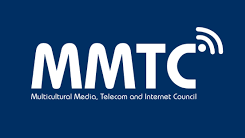MMTC, LULAC Urge FCC To Consider Multilingual Needs During Emergencies
Specifically acknowledge the needs amid a pandemic, as well as hurricanes and tornadoes

WASHINGTON—The Multicultural, Media Telecom and Internet Council (MMTC) and the League of United Latin American Citizens (LULAC) have provided an outline of strategies they believe the FCC should implement to ensure multilingual populations receive critical information during emergencies, including pandemic and natural disasters.
MMTC and LULAC made two specific recommendations for the FCC to ensure that they deliver and maintain emergency communications to multilingual populations.
The first is for communications during a pandemic, when systems are not adversely impacted. In this case, the organizations believe the FCC should survey communication providers’ resiliency, redundancy and multiple language capabilities before, during and immediately after the emergency. Based on the results, the FCC should design and implement a training regimen to assist providers in meeting the information needs of multilingual populations in the event of such an emergency.
The second recommendation focuses more on hurricanes and tornadoes that take down electric wireline or wireless grids for communication. For this MMTC and LULAC want to see the FCC adopt the “Designated Hitter” system, which ensures that at least one commercial or noncommercial full power radio station is able to remain on air during and after a hurricane with the responsibility of distributing critical multilingual information.
PLUS: FCC Releases Results of 2019 EAS Test
Here’s what the organizations wrote about the “Designated Hitter” idea:
“For communication during and after a hurricane or tornado that takes down the electric, wireline or wireless grids -- as happened with Hurricanes Andrew (1992), Katrina (2005), Maria (2017), Florence (2018), and Michael (2018) -- the commission should adopt a radio station ‘Designated Hitter’ system. When radio is the last resort for mass communication, the Designated Hitter paradigm contemplates that at least one commercial or noncommercial full power radio station, able to remain on the air during and after a hurricane, will have arranged in advance to broadcast life-saving multilingual information.
The professional video industry's #1 source for news, trends and product and tech information. Sign up below.
“Initially, these arrangements would be made in radio markets that have no more than one full service in-language station (defined as a commercial full power FM, or an AM with at least 1 kw day and night) and where there are more than 50,000 persons likely to speak the target language). This paradigm is necessary if one or more grids go down, leaving radio stations with generators as the only channels capable of mass communication. The ‘Designated Hitter’ concept is the only method that can pre-arrange and generally assure the provision of life-saving multilingual information during and after a hurricane or tornado.”
With the COVID-19 pandemic still impacting the country and hurricane season scheduled to start on June 1, the two groups say that a multilingual emergency communications system is needed immediately.
In addition to pandemic, hurricanes and tornadoes, MMTC and LULAC also indicate other types of emergencies that such services would be needed, including floods, bombings or terrorist attacks and nuclear meltdown or nuclear bombs.
“The Commission’s top priority should be meeting the urgent information needs of America’s
often isolated and disadvantaged multilingual populations while under COVID-19,” the letter to the FCC reads. “That means, initially, that the Commission should ensure that its regulatees possess the capabilities and expertise needed to deliver in-language service to those who will need it the most.
“We are hopeful that upon appreciating the urgency of action in light of COVID-19, the industries that provide emergency communications would consider not imposing objections, and would instead work collaboratively with MMTC and LULAC to protect those who are the most vulnerable.”
